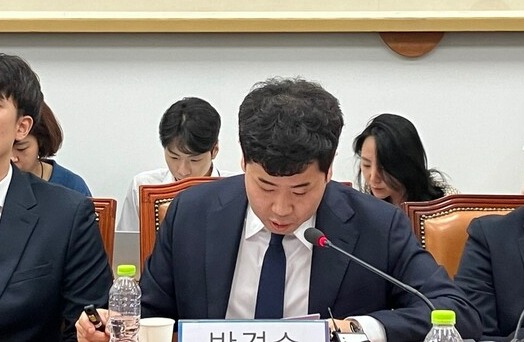Trainee doctors are preparing to return home. They met with Prime Minister Kim Min-seok and members of the National Assembly's Health and Welfare Committee.
However, the future of Korean healthcare is bleak, as junior doctors see it. Trainee physicians at these meetings said it would be difficult to rebuild “critical and essential healthcare” without improving training conditions and easing the burden of litigation.
Trainee doctors pointed out these and other points while meeting with members of the National Assembly's Health and Welfare Committee on Monday.

“Even before the government-doctor conflict broke out, trainee doctors in critical and essential medical departments had been forced to work rather than receive training,” said Kim Jae-yeon, a member of the emergency committee of the Korea Intern Resident Association (KIRA). "The gap between expected training and reality has caused them to lose interest and burn out more easily.”
Kim, who represented junior doctors at Samsung Changwon Hospital, noted that the dropout rate has increased the workload of the remaining doctors.
"Although the Trainee Doctor Act limits junior doctors’ work to 80 hours a week, it is not uncommon for them to work 36 hours straight after being on call in extreme cases," Kim said. “They may not be able to learn and practice core skills."
Kim emphasized that improving the training environment is a must. "I didn't expect the critical care scene to change for the better, but professors and trainee doctors still support it. Now is a good time to improve it," he said
The “burden of litigation,” which is greater in essential medical departments, was also cited as a primary reason for doctors leaving the field.
In a survey of resigned trainee doctors conducted by KIRA’s emergency committee, 91.3 percent of them cited “to avoid the legal burden of medical accidents” as the reason for not choosing critical and essential medical specialties. “The government's unilateral policy push” was cited by 73.3 percent, and “lack of stability” by 43.3 percent.
“If we can free ourselves from legal liability even a little bit, the situation will change dramatically,” said Park Kyung-soo, another member of the KIRA emergency committee. “If judicial risks are reduced, doctors will be more aggressive in their practice, which will be beneficial in the long run.”
Park, who represents trainee doctors at Chonnam National University Hospital, noted that if the burden of lawsuits is reduced, more junior doctors will apply for critical and essential medical specialties.
"Critical and essential medical specialties are closely related to patients' lives, so legal issues must always be kept in mind," Park said. "Some junior doctors were afraid of being arrested and pondered whether to continue their training, while others gave up their training because they felt hopeless when they saw medical professors around them being arrested."
However, there remain some who want to become doctors who help critically ill patients, and feel rewarded and fulfilled from it, Park emphasized.
“I hope the authorities can solve their problems before they even give up their training," he added.
Related articles
- Despite a thaw in conflict, essential departments worry about lack of trainee doctors
- Lee administration steps up to resolve government-doctor conflict
- Only 7% recruited: Korea's emergency medicine faces severe shortage
- President Lee urges action to bring med students back this fall
- ER doctors urge government apology for failed policy, not blame on trainees
- President Lee instructs education ministry to follow up on medical students’ return to school
- [Column] Time to weed out the bad apples – doctors who have become a public eyesore
- Before addressing medical accident liability, professor offers public apology

